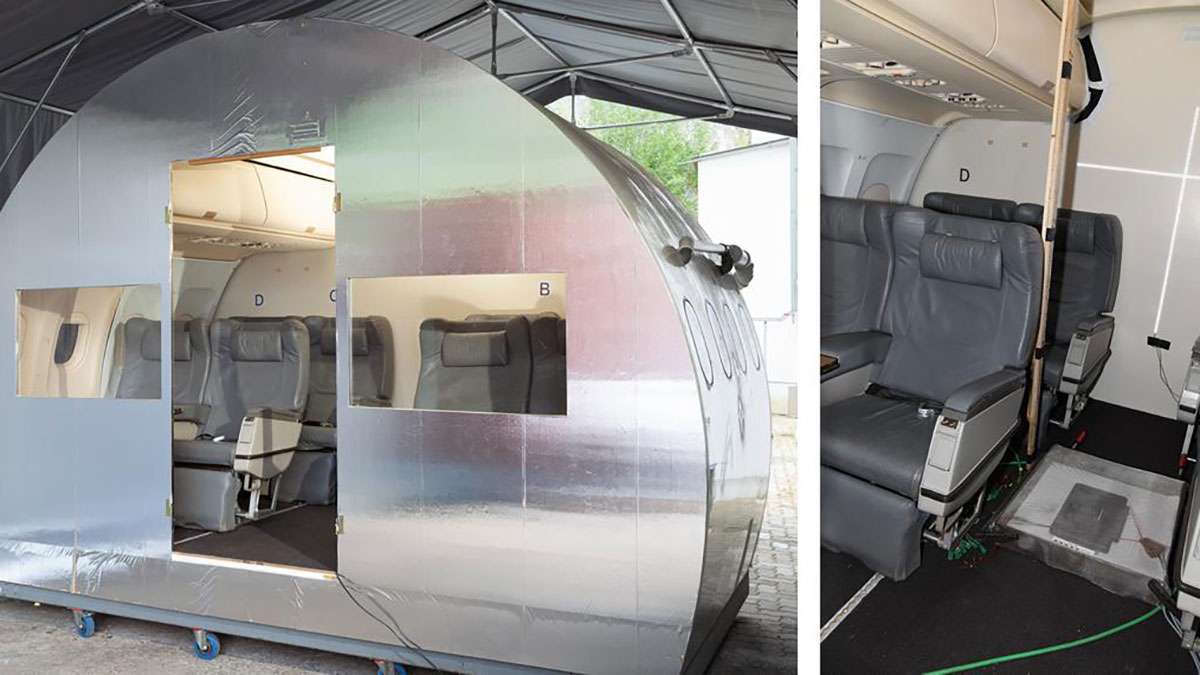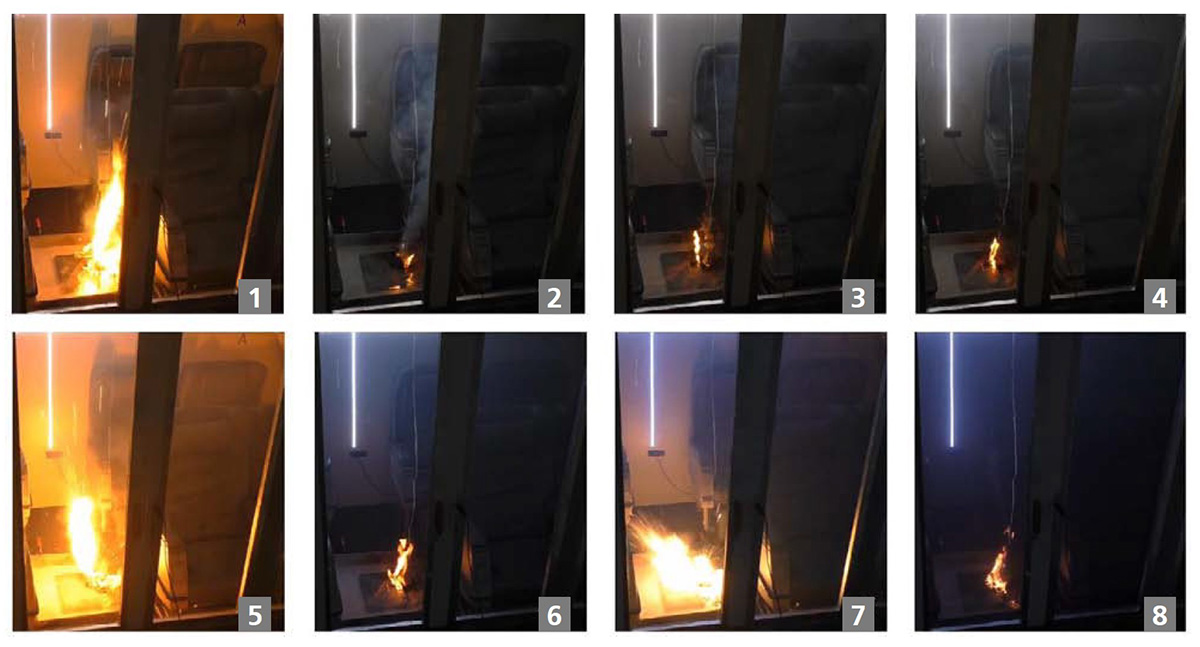Investigation of fire and smoke risks from lithium batteries in aircraft.
In the LOKI-PED (Lithium batteries in pOrtable electronic devices – risK of fIre and smoke) project, researchers at Fraunhofer EMI and Fraunhofer IBP are collaborating with Airbus to investigate and assess the smoke and fire risks associated with lithium batteries in portable electronic devices (PEDs) in cabins and cockpits. The project is supported by the European Union Aviation Safety Agency (EASA) and financed by the European Union’s Horizon Europe program.
In 2024, cabin fire tests with laptops took place at the Fraunhofer EMI site in Efringen-Kirchen. The thermal runaway of laptops was investigated in a real cabin scenario under realistic ventilation conditions. The tests are conducted in a ventilated A320 single aisle mockup. Laptops with nine cells were placed in a metal box at five different locations in the mockup: on the floor, on seats and in the overhead compartment. During the tests, the amount and composition of the vent gases as well as the temperatures in the cabin were analyzed.

